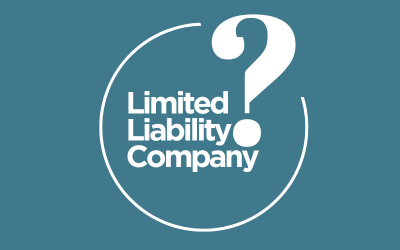A lot of new small business owners assume that creating an LLC is a complicated thing. It’s not, actually. But it is one of the best things you can do to protect your personal assets and your business.
Let’s take a look at what it takes to set your business up as a Limited Liability Company:
- Choose a name – Your name will be the first thing people see or hear as it relates to your new business, so make it a good one (here you can find tips on coming up with a memorable name). Next, you want to make sure you’re the only one using that name. You can do that with a free corporate name search in your state.
- Assign a registered agent – An LLC must designate a registered agent authorized to accept service of process (essential government documents and legal notices) on behalf of its business in the state. Having a registered agent is legally required for LLCs.
- Register the LLC and file your paperwork – If you’re doing the filing yourself, you need to download your state’s Articles of Organization paperwork and fill that out. If you’re letting a document filing service like CorpNet handle it, you just need to provide basic contact information and a few details about your company. Easy peasy.
- Request a federal tax ID – Before you can start operating as an LLC, you need an Employer Identification Number (EIN). This is like a social security number for your business, and one you’ll need before opening a business bank account.
- Create your operating agreement – This document outlines the rights and obligations of the members of your LLC, as well as lists the distribution of income of the Limited Liability Company to its members. Your operating agreement doesn’t need to be filed with your state, you do need to keep one on premises, signed, if you have other shareholders.
- Obtain business licenses and permits – Additionally, you should apply for any business licenses or permits you’ll need to operate your business. It’s best to do this before you start operating your business to avoid potential fees or issues down the road.
- Keep Your LLC Compliant – Once you’re operating as an LLC, your work isn’t done for good. Each year, you will need to file your annual report. The due date for this annual report depends on where you filed your LLC. For example, if you filed it in Michigan, Delaware, North Carolina, Georgia, Florida, or Texas, there’s a specific date that your annual report is due. Other states, it’s due on the anniversary of when you filed your LLC.
Now see? Wasn’t forming an LLC practically painless? A lot of our customers like them because they require fewer formalities and less paperwork than the corporation, while still providing that protection of your personal assets, as well as tax benefits. If I can help you get started with your LLC paperwork, please contact me today.





